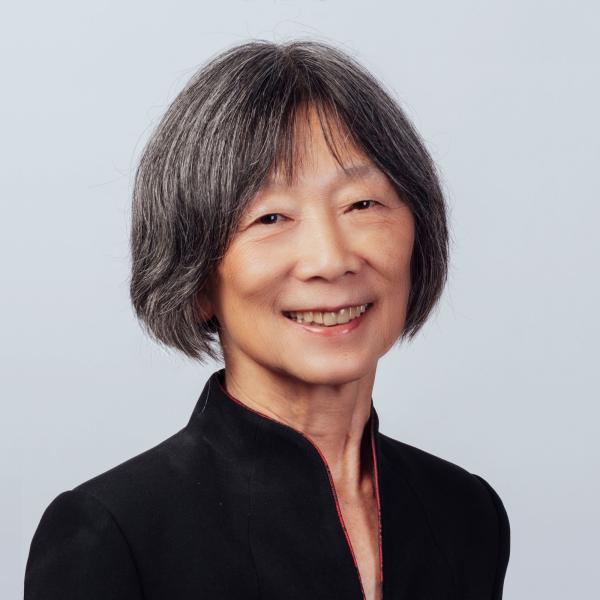Pauline Yu
National Humanities Medal
2022

—Cesarin Mateo

—Cesarin Mateo
Pauline Yu was born and raised in the state of New York, the child of two immigrants from China who were esteemed doctors. (Indeed, for a time her father served as a cardiologist to Chinese president Chiang Kai-shek.) As a child, she fell in love with languages, and eventually studied French and German literature and history at Harvard. How does an American of Chinese descent wind up so interested in Europe?
“That’s a question my parents kept asking too,” Yu says, laughing.
Regardless, Yu’s entire career has exemplified an omnivorousness and affection for language and culture. She is best known for her translations and criticism of classical Chinese poetry—her first book, published in 1980, was a study of the poet Wang Wei, and she has published multiple scholarly books on Chinese poetry since then. After teaching at the University of Minnesota and Columbia University, she transitioned into administrative roles, serving as dean of humanities at UCLA from 1994 to 2003. Throughout her career, she’s remained passionate about the cultural intersections that the humanities explore.
“I’ve always thought that one should not take for granted one particular culture, or one country’s or one author’s particular take on the world,” she says. “When you work with different languages, you’re forced to pay attention to the different ways in which one can say things. In writing about that literature, you’re always trying to think, how differently could that person have proceeded? How might this person have expressed this in a different way?”
Serving as humanities dean at UCLA offered a particularly robust opportunity to engage with the range of scholarship in the field. “I spent a great deal of time reviewing the work of every single faculty member in the division of humanities, which at that time came to almost 300 people, professors and lecturers,” she says. “It was a lot of time, but I always thought it was time well spent, because I came out of it richer for having done that. I wouldn't have had that opportunity if I hadn't gone into administration.”
Yu left UCLA in 2003 to serve as president of the American Council of Learned Societies, an association of humanities organizations that promotes the discipline and administers grants to scholars. Yu continued in that role until 2019, a period during which the challenges to the humanities, particularly in academia, became increasingly acute. Be it due to funding cuts, a stronger emphasis on STEM disciplines, or disengagement in the arts among the public, the crisis is impossible to ignore, Yu acknowledges.
“I think it is more severe now, it’s more intense,” she says. “What’s happening to departments across the country, as people have documented, is much more extreme.” She adds, though, that the level of scholarship in the humanities remains high. “The kind of scholars that are being trained and produced now, and the kind of scholarship they’re writing, is, if anything, more far-reaching and ambitious and seeking to speak to a larger audience than was the case a generation ago.”
Yu notes also that the atmosphere of crisis in the humanities has been practically constant, given how concerned the discipline is with the meaning and prospects of humanity. “These are questions that motivate our development as individuals and the way in which we deal with other members of the world around us,” she says. “How can that not matter? . . . It also helps to frame the priorities you set with respect to every other kind of engagement, whether it be science or politics or anything else.”
While in recent years Yu’s focus has been on advocacy for the humanities through ACLS and other organizations like the Teagle Foundation (she recently stepped down after serving more than 20 years), she’s continued her own scholarship as well. She’s recently completed a study of Le livre de jade (The Book of Jade), the first literary translation of classical Chinese poetry in the West.
Once again, it’s an opportunity to explore a variety of different cultural crosscurrents. “[The Book of Jade] was remarkably influential over the course of the nineteenth century, and inspired a number of retranslations and introduced people to Chinese poetry, and in some ways more effectively than a more scholarly work would have done.”
It is also a kind of intellectual homecoming for Yu—an opportunity to continue the deep engagement with language and history that enchanted her as a child and young scholar. “It was nice for me to come back to something that took me back to things that I was interested in 50 years ago,” she says.
—Mark Athitakis